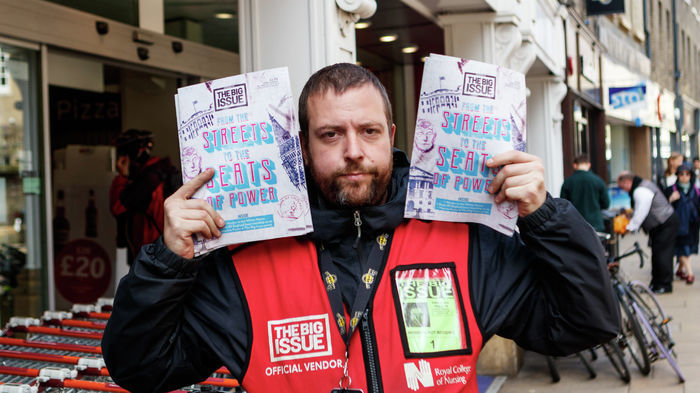Commodifying charity: what do we receive when we give?
Alex Jacob and Maya Beney discuss the harmful habit of viewing charitable donations as transactions.

Giving to charity is universally understood as a sign of generosity and selflessness. It is a dependable indicator of what society characterises as a ‘good’ person. But, by definition, resources are limited. We cannot always give away what we’d like to give: if we could, then the need for charity would itself be negated. Recent events, however, have made me question our collective approach to the concept of charity.
Now, more than ever, I have noticed a surge in calls for donations: the Black Lives Matter movement, Covid-19 mitigation, the Beirut explosion; to name just a few. All of the above are critically important causes. They rightly appeal to our pockets for spare change, with the hope that large-scale results can be achieved through large-scale charitable appeal. So how do we choose? What motivates our decision? And, if we choose to do so, what kind of outcome do we expect?
This is particularly an issue for students who - generally speaking - envision impacting the world for the better, but tend to be a financially limited societal group. One cause in particular stuck with me, perhaps because it felt a little closer to home. Some of you may have seen Jonjo Doe’s appeal for money towards his coffee trike business, after the garage in which his stall was being stored went into arrears. As Varsity have already noted, ‘within 24 hours there [were] over 625 individual donations, taking the total raised since 2018 to over £22,300.’ This has increased to £29,513 (at the time of writing).
Full disclosure: I partly donated as a way to ease my conscience (as well as out of altruism). Jonjo was someone whom I had walked past frequently and chatted to about his coffee trike business. More generally, hearing about his particular instance of Covid-19 related misfortune was deeply upsetting. In donating, I wanted to help him, to right a situation which I thought was deeply unjust. Yet, at the same time, how much of my decision was intended for my own personal gain? Through my contribution I’d expected to feel better about myself; to replicate that smug feeling of magnanimity that we can only receive through the act of giving. These two aims can overlap, creating the illusion that our money is a simple solution — that we can be saviours with the simple swipe of a card.
“Our aims can create the illusion that we can be saviours with a simple swipe of a card.”
I want to focus more closely on this precise sense of expectation. I speak very much for myself here, but when I made that donation, I expected to see an outcome proportional to the money given. A few months later, I’m still aware that the money received has not necessarily solved all of Jonjo’s obstacles. But this is less about Jonjo’s coffee trike — as important as that is, and as much as I genuinely want him to succeed — than it is about our collective attitude towards charity.
Again, I’m using myself as a case study, but I think that it is far too easy to slip into a mentality which equates the act of donating to charity to the act of buying a product which guarantees results. The reality is often much less outcome-based. When I made that donation, I made an implicit assumption that money would quickly rectify the issue. When it didn’t, I found myself feeling frustrated; first at the cause, and then at myself, for unthinkingly assuming a positive impact.
“Commodifying charity as a one-off purchase and alleviation of guilt neglects the fact that long-term support is in most cases vital for a cause to succeed.”
The fact that I and others had come to see charity as a product to buy feels like a perversion of the concept. Appeals for donations on Facebook are interspersed with advertisements for frivolities including clothes and gadgets. Scrolling through, I started to feel as if my perception of charity had become commodified into yet another product. It was a one-off purchase that promised a simple solution to a complicated situation. This is damaging in yet another way, for as a friend of mine astutely pointed out, our funding dries up as causes are pushed out of the limelight. Commodifying charity as a one-off purchase and alleviation of guilt neglects the fact that long-term support is in most cases vital for a cause to succeed. If we really have to think of charity as a commodity, then it would be better to perceive it as a ‘Spotify Premium:’ a monthly subscription model, rather than a one-off purchase. It’s about more than temporary guilt alleviation. It’s about continued support. The former mentality is one that I’m certainly guilty of, but one that I feel should be reconsidered if we are to achieve significant change.
Jonjo’s situation still hasn’t been entirely resolved: further difficulties have barred his coffee trike business from progression, including legal problems with the Big Issue, debt incurred, and apparent bureaucratic blockades from the Cambridge City Council (a change.org petition has been started here). Either way, it is clear to me that change for Jonjo will be slow and incremental, rather than immediate and swift. The same applies to other current charitable causes: money donated to BLM movements will not resolve racism in itself, but will help the relevant parties to achieve incremental, systematic change. But charity can still be invoked if we truly believe in the importance of the cause to which we donate, rather than viewing it as a transaction with a definitive outcome, from which we can renew our own sense of generosity. It’s a small mental shift, but one which I will certainly be attempting to make.
 News / Clare Hall spent over £500k opposing busway 24 December 2025
News / Clare Hall spent over £500k opposing busway 24 December 2025 News / Caius mourns its tree-mendous loss23 December 2025
News / Caius mourns its tree-mendous loss23 December 2025 Comment / The ‘class’ of Cambridge24 December 2025
Comment / The ‘class’ of Cambridge24 December 2025 Comment / Yes, I’m brown – but I have more important things to say22 December 2025
Comment / Yes, I’m brown – but I have more important things to say22 December 2025 Interviews / Politics, your own way: Tilly Middlehurst on speaking out21 December 2025
Interviews / Politics, your own way: Tilly Middlehurst on speaking out21 December 2025










